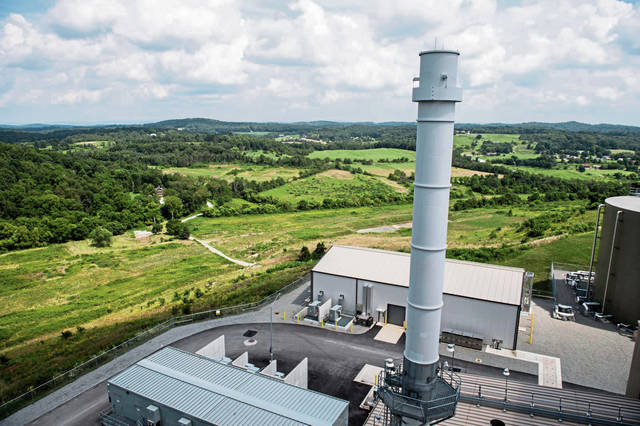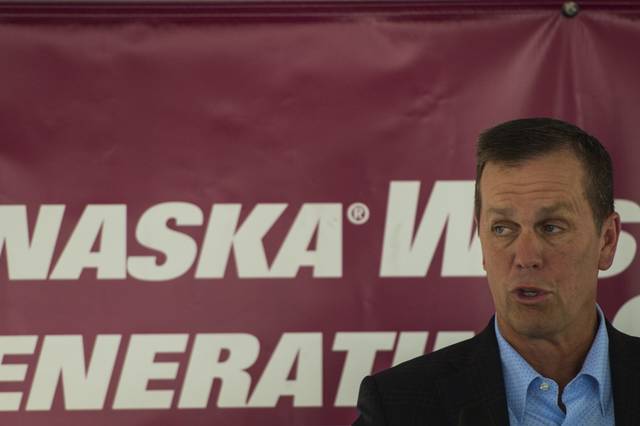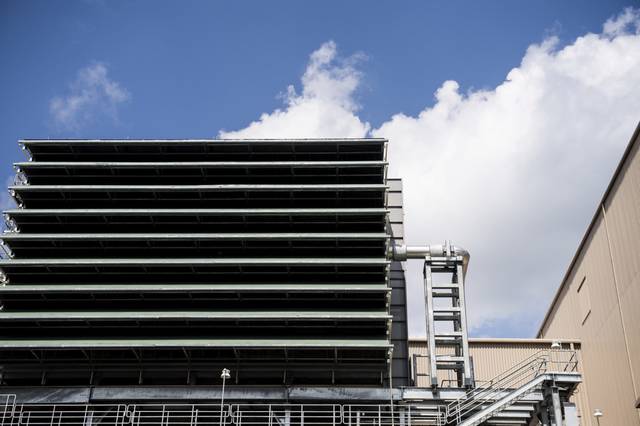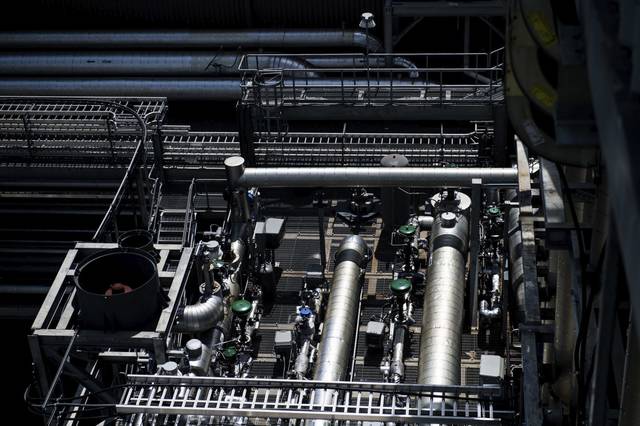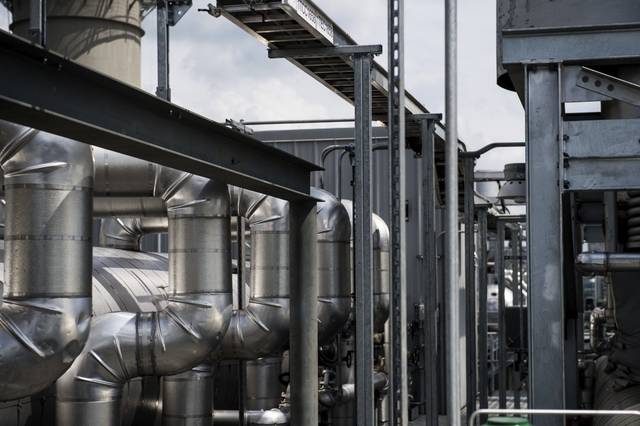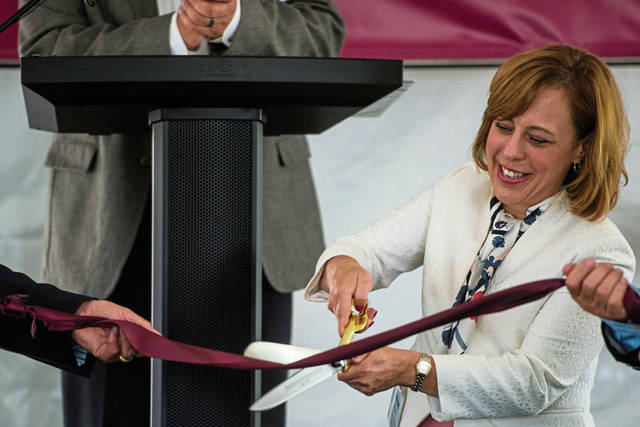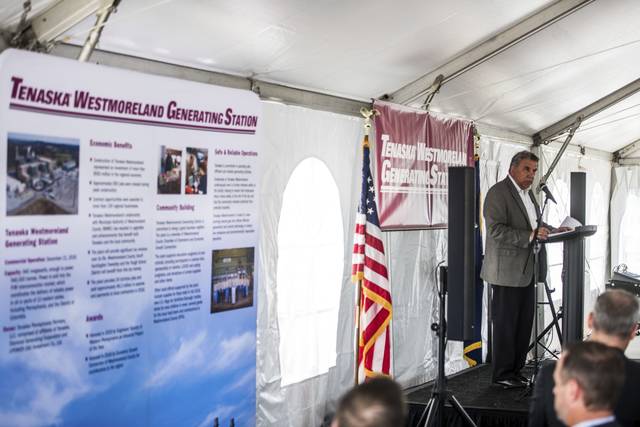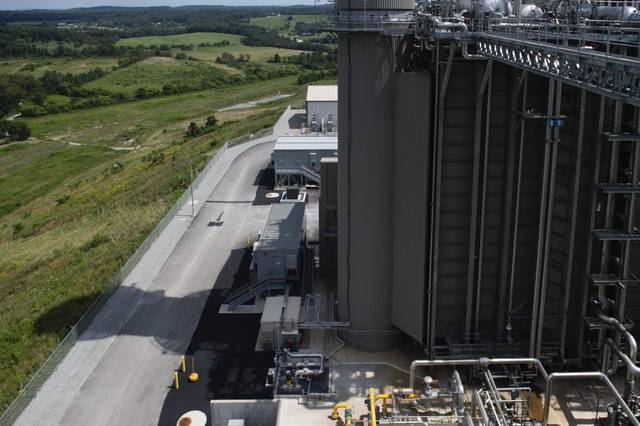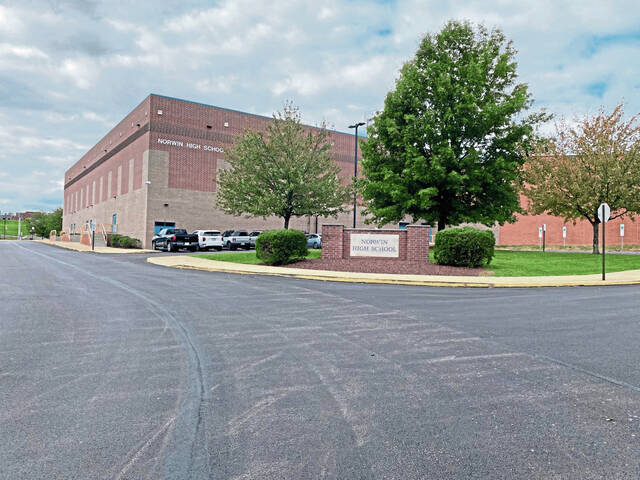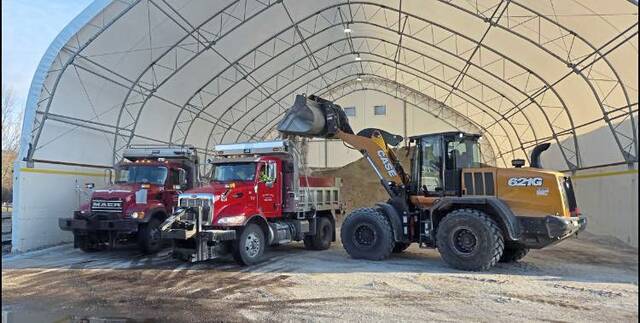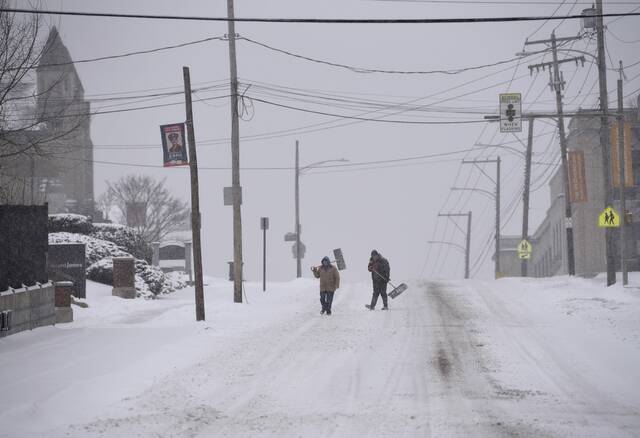The Tenaska Westmoreland Generating Station that sits atop a hill in rural South Huntingdon is just the latest of what federal energy officials predict will be a wave of natural gas-powered plants to be built over the next 30 years.
Most of the nation’s new electricity generating capacity that will go online through 2050 will be natural gas combined-cycle — which uses both natural gas and a steam turbine to produce the power — plus solar photovoltaic, according to the federal Energy Information Administration’s long-term predictions.
Pennsylvania already has 50 natural gas-fueled power plants that provide 29% of the state’s energy needs. That’s second only to nuclear power plants, which generate 39% of the state’s energy supply, according to the Pennsylvania Public Utilities Commission’s Energy Outlook Report from 2018. The state will be getting another natural gas-powered electrical plant when one north of Johnstown goes online next year.
“We are seeing a significant shift to natural gas in our footprint,” said Paul McGlynn, senior director of systems operations for PJM, the regional power transmission organization, at dedication ceremonies Wednesday for the huge power plant.
Tenaska’s plant, owned by a three-partner consortium operating under the name of Tenaska Pennsylvania Partners LLC., is connected to the grid through a series of giant towers carrying power lines from the plant to a substation. That grid coordinates the movement of wholesale electricity in Pennsylvania and 12 other states and Washington, D.C.
The PJM grid has sufficient supply but there is still a demand for more power from plants such as Tenaska’s 940 megawatt station north of Smithton, McGlynn said. Old power plants, including coal-fired ones, are being decommissioned while there is an increase in demand for electricity, McGlynn said.
The $500 million Tenaska Westmoreland plant, which employs 24 workers, has the generating capacity to power to 940,000 homes. The massive plant has towers that jut some 200 feet above the ground and the tops are visible from nearby Interstate 70.
The plant went online in December 2018 and was at full capacity by early February, according to A.J. Peck, maintenance manager.
Unlike some electric generating plants that have long-term contracts with one specific customer, such as a steel mill, Tenaska’s Pennsylvania Partners sells its power to PJM to be placed on the grid. When there is not the demand for its power, the plant does not produce electricity, said Timberly Ross, a Tenaska spokeswoman.
Constructing and operating the power plant without a long-term customer is “more of a risk,” Jerry Crouse, Tenaska CEO, told an audience of about 120 people at the dedication, but the company’s lenders had faith that it would work.
“We are going to be here for a very long time,” Crouse said.
With the natural gas-powered plants in the state, which has “the third-largest natural gas basin in the world,” Pennsylvania is “at the epicenter of a global energy transition,” said Denise Brinley, executive director of the state’s Office of Energy.
Pennsylvania is involved in that search for a cleaner form of energy, Brinley said.
The Omaha, Neb.-based energy company broke ground in the former farm field three years ago, after the state Department of Environmental Protection gave it approval in April 2015 to start construction.
Tenaska began searching for a site for the plant nine years ago, seeking close proximity to natural gas and an electric power grid, along with a sufficient water supply.
The company’s plans for putting the plant in a rural community drew opposition from environmental groups and neighboring residents. The Pennsylvania Clean Air Council and the Pittsburgh-based Group Against Smog and Pollution challenged the permit before the state Environmental Hearing Board in 2015, contending there would be health impacts from discharges into the air and water.
A settlement was reached by November 2015, paving the way for building a plant that provided 650 jobs during peak construction, Tenaska said.


